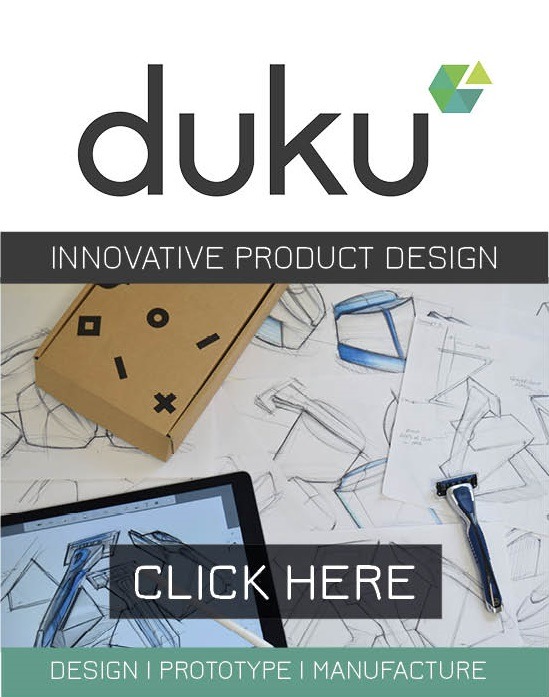Ask an Attorney
What Our Customers Say...



European Patent Cost Calculator
Need a Product Designer?
Helpful Tips
Do I have to identify the designer?
It is possible to waive the name of the designer when filing a European Community Design, but you should be sure that you have the rights to the design
Patents
Albright IP is a full service patent and trade mark attorney firm. Our first-class attorneys have exceptional expertise, and will represent you before the UK Intellectual Property Office (UK IPO), the European Patent Office (EPO) and internationally before the World Intellectual Property Organisation (WIPO). We can also obtain patent rights for you in almost any country throughout the world. If you would like to know more about how to patent your invention or idea, please see our introductory video below.

PATENTS OVERVIEW
What is a patent?
Patents generally protect products or processes which include new technical or functional aspects. They protect the ideas behind how things work. If a new product or process yields advantages over known products and processes, then there is a reasonable likelihood that it is patentable, provided that it has not already been publicly disclosed.
The protection afforded by a patent is territorial. For example, a British patent only gives the patentee a monopoly in the UK. It is possible to file a patent application in the UK, and to then file corresponding patent applications in foreign countries up to a year later. There is thus a 12 month grace period for overseas patent filings in most countries.
Please click here to read more about the importance of patent protection to your business.





Where can I get advice on patents?
Located in Cheltenham, UK, our Chartered British and European patent attorneys are able to advise on all areas of patent law, and how to patent your invention, including:
Will Not Display
Patentability
An invention is only patentable if it meets certain criteria. It needs to be novel, inventive, and industrially applicable. Another way of saying this is that an invention needs to be new, not obvious, and have a real world use. There are also certain exclusions to what can be patented (see Excluded Subject Matter). These are some of the hurdles that must be passed before a patent can be granted.
For more information, please see the following article relating to patentability. Alternatively, please contact us by calling +44 (0) 1242 691 801 to speak with one of our qualified British and European attorneys.
Excluded Subject Matter
Note that different countries have different rules about what may be patented, so it may be that a certain invention might be excluded in one country and allowable in another.
For more information, please see the following article relating to excluded subject matter. Alternatively, please contact us by calling +44 (0) 1242 691 801 to speak with one of our qualified British and European attorneys.
Pre-Application Searching
Note that every a patent application submitted to the UK IPO has a mandatory search done by the UK IPO. This is separate to any previous searching you have commissioned privately.
For more information, please see the following article relating to pre-application searching. Alternatively, please contact us by calling +44 (0) 1242 691 801 to speak with one of our qualified British and European attorneys.
Patent drafting, filing and amendment
A patent specification is a carefully constructed document containing different sections, such as the claims and the description. The wording of each part of the specification needs to be deliberately chosen to support any changes, if required further down the line (known as amendment). For similar reasons, it is advisable to submit all of the required parts of a patent specification on filing an application, to avoid issues with ‘added matter’.
We offer competitive fixed fee deals for drafting patent specifications across a range of subject matter, including mechanical, chemical and software-related inventions. We also offer competitive rates for handling patent applications through to grant in any country.
For more information, please see the following articles relating to patent drafting and amendment. Alternatively, please contact us by calling +44 (0) 1242 691 801 to speak with one of our qualified British and European attorneys.
Validity
A patent may be invalid if it is not novel or inventive, but other reasons for invalidity exist. For example, if a granted patent can be shown to contain ‘added matter’, i.e. information that was not present in the application as filed, then it is likely to be revoked as invalid.
Issues concerning patent validity can arise during cases of patent infringement, where one party has alleged infringement and the other contends that the patent is invalid (and so unenforceable).
For more information, please contact us by calling +44 (0) 1242 691 801 to speak with one of our qualified British and European attorneys.
Infringement
A patent can only be enforced once granted. If you own a granted patent, you have the right to stop another party from doing something that would fall within the scope of a claim in your patent (known as infringement).
For example, if you have a granted UK patent for a product or system, then you would have the right to stop another party making, using, disposing (selling), offering to dispose of (sell), importing into or keeping that product in the UK. Similar rights apply for the product of a patented process.
There is also the possibility of ‘contributory’ infringement, where a party does not infringe a claim in a patent but enables another party to do so.
For more information, please see the following article relating to infringement. Alternatively, please contact us by calling +44 (0) 1242 691 801 to speak with one of our qualified British and European attorneys.
Revocation
Alternatively, a granted patent may contain information that was not present in the patent specification as filed (‘added matter’), or there may not be enough information in the specification to explain how to work the invention (a lack of enabling disclosure, or ‘insufficiency’).
In such cases, it is possible for a patent to be revoked, or partially revoked, by a court or by the relevant Office (e.g. the UK IPO or the EPO), in light of new prior art that pre-dates an application, for example.
For more information, please contact us by calling +44 (0) 1242 691 801 to speak with one of our qualified British and European attorneys.
Entitlement
For example, a patent application may be filed in the name of a company. The company itself did not invent the invention, rather the inventor(s) did. If the inventors are employed by the company, the rights normally pass to the employer under UK patent law. However, in the case of a company Director, the relevant rights may not pass automatically, and an assignment may be needed to transfer the patent rights to the company.
For more information, please contact us by calling +44 (0) 1242 691 801 to speak with one of our qualified British and European attorneys.
Renewals
In the UK, renewal fees are due for the fifth year onwards, but only need to be paid once the patent application has been granted. For a European patent application, renewal fees are due whilst the application is pending as well as post-grant.
In both the UK and Europe, renewal fees can be paid up to 6 months late, with a surcharge. The cost of renewal tends to increase each year. If a renewal fee is not paid, the patent will lapse.
For more information, please contact us by calling +44 (0) 1242 691 801 to speak with one of our qualified British and European attorneys.
Licensing, Assignments and Recordal
Different types of licenses are possible, and the terms can be negotiated according to the value of the patent (or patent portfolio). Patent assignments normally transfer all of the patent rights from one party (the ‘assignor’) to the other (the ‘assignee’). Licenses and assignments should be recorded at the relevant Patent Office once finalised.
For more information, please contact us by calling +44 (0) 1242 691 801 to speak with one of our qualified British and European attorneys.
The Patent Box
Note that certain restrictions will be placed on the Patent Box scheme from June 2016, although anyone benefitting from the current scheme may continue to do so until June 2021.
For more information, please see the following article relating to the Patent Box. Alternatively, please contact us by calling +44 (0) 1242 691 801 to speak with one of our qualified British and European attorneys.





What else should I know about IP protection?
In addition to advising on how to patent your invention, we can provide free initial advice regarding Registered Designs to protect the appearance of your products, Trade Marks for your brand image and company and Copyright to cover your literature, artwork and graphic design.
Whether you are an inventor, designer, entrepreneur or business, Albright IP can help you stay ahead of your competitors by protecting your new designs, products and trade names in a thorough, proactive and cost effective way.
Our firm provides a personal service, puts our clients first and has a strategy to support your enterprise. We are here to protect your creative vision, innovation and investment, through domestic, European and international patent filings.
If you would like further information, please contact us on +44 (0) 1242 691 801 to speak to a qualified British and European patent attorney.
ASK AN EXPERT ATTORNEY






